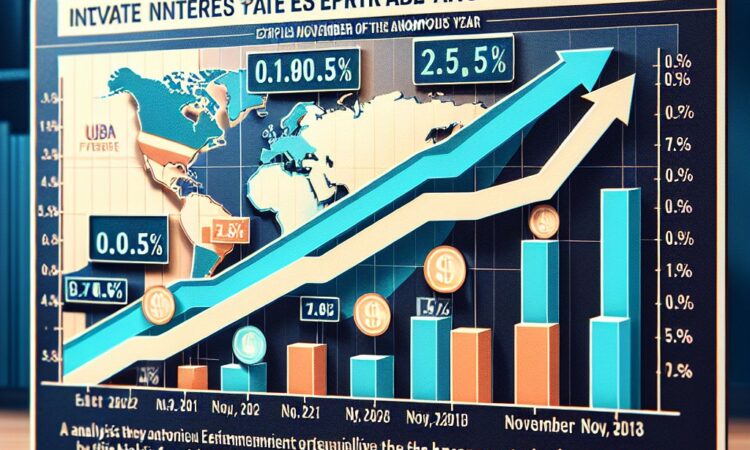Central Banks Raise Interest Rates
Central banks around the world are raising interest rates in an effort to combat high inflation. The US Federal Reserve raised interest rates by 0.75 percentage points in November 2023, marking the fourth consecutive rate hike. Similarly, the European Central Bank also raised interest rates by 0.75 percentage points in November, marking the second consecutive rate hike.
Interest rates are a powerful tool used by central banks to control the supply of money in the economy. By raising rates, central banks aim to reign in inflationary pressures and ensure stable economic growth. The recent rate hikes indicate a growing concern over rising inflation levels.
The decision of the US Federal Reserve to increase interest rates reflects the positive economic conditions in the United States, with low unemployment rates and robust economic growth. The rate hike is seen as a precautionary move to prevent overheating of the economy and to mitigate the potential risks of inflation.
Similarly, the European Central Bank’s decision to raise rates suggests a consolidation of economic stability in the Eurozone. By increasing borrowing costs, the ECB aims to moderate spending and curb inflationary pressures within the region.
The rising interest rates can have various implications on the global economy. While they act as a deterrent to borrowing, they also attract foreign investment, strengthening the respective currencies. Companies and individuals looking to borrow money will face higher borrowing costs, which can slow down consumer spending and investment. However, higher interest rates also provide an incentive for savers to deposit their money in banks, as they can earn higher returns on their savings.
In conclusion, the recent interest rate hikes by central banks signify their commitment to addressing the challenges posed by high inflation. The moves by the US Federal Reserve and the European Central Bank highlight their vigilance in ensuring sustainable economic growth while maintaining price stability. These decisions have far-reaching implications for individuals, businesses, and the overall global economy.

